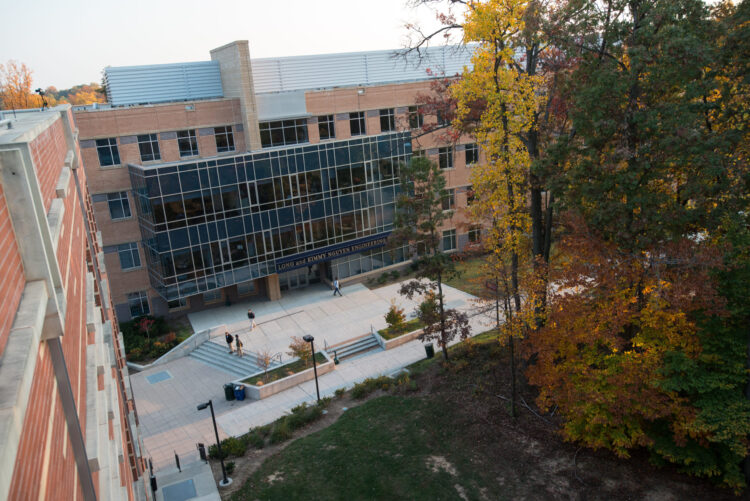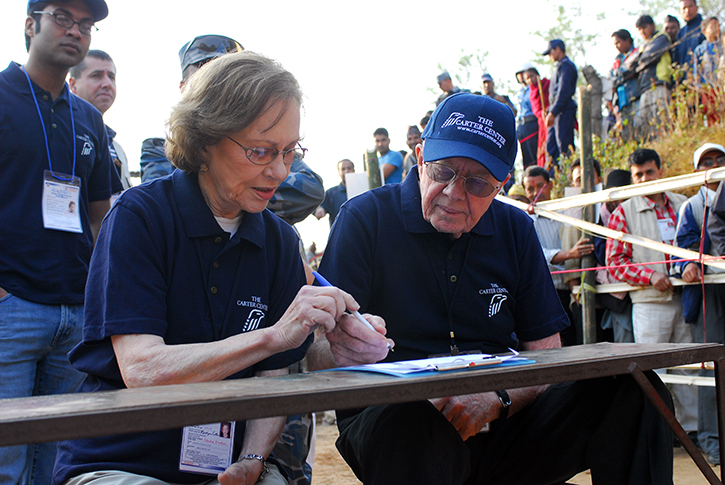E-Newsletter
George Mason University updates: Cyber Security Engineering Department established; School for Conflict Analysis and Resolution to change name
Department of Cyber Security Engineering launched at Mason
George Mason University, based in Fairfax, Va., established a new Department of Cyber Security Engineering within its Volgenau School of Engineering. Recently approved by state authorities, the program is the first of its kind in the country, according to a Mason news release.
“The creation of the Cyber Security Engineering Department is timely as it not only meets Mason’s overall goal to contribute to and expand tech talent in the Northern Virginia region, but is a direct response for a specific type of worker to meet the growing cybersecurity demands nationwide,” provost and executive vice president S. David Wu said.
Mason launched its BS in Cyber Security degree in 2015, the first such degree in the country, according to Peggy S. Brouse, director of Mason’s BS in cyber-security engineering degree and associate chair of the new department.
The new department, which was officially established March 1, is home to the 500 undergraduate students currently working toward bachelor of science degrees in Cyber Security Engineering and led by Duminda Wijesekera, the interim director and a professor of computer science within the Volgenau School of Engineering.
“The BS Cyber Security Engineering program is focused on the cyber security engineering of integrated cyber-physical systems,” said Brouse. “Because of their interdisciplinary training, cyber security engineers are expected to play an increasing role in attacking some of the most pressing current cyber security issues in the country.”
“The demand for cyber security engineers increases every year with Comparitech’s analysis showing that Virginia is the top state for cybersecurity jobs. Our degree is contributing to filling the ever-growing demand,” Brouse added.

Long and Kimmy Nguyen Engineering building in the Fall. Photo by Evan Cantwell/George Mason University
“This is an exciting time in Mason’s history as we are training and preparing a 21st-century workforce that will impact the world’s population,” stated Ken Ball, dean of the Volgenau School of Engineering. “There is a national shortfall of personnel who are trained to handle the increasing numbers of cybersecurity issues and intrusions.”
The Cybersecurity Workforce Gap, published by the Center of Strategic and International Studies, reports that by 2022, “the global cybersecurity workforce shortage has been projected to reach upwards of 1.8 million unfilled positions.”
The curriculum will advance hardware and software security in areas such as health, finance, 5G cellular networks, supply chain, logistics, infrastructure, autonomous vehicles, smart cities, and the internet of things. The Center for Cyber Safety and Education noted that there is a global shortfall of 3 million skilled personnel in cybersecurity.
“Graduates from the department will have broad expertise across all areas of cybersecurity in engineered systems, and will be able to design systems proactively that are resilient to cyber attacks,” Ball said. “They will be in demand to fill jobs in all industries, not just in the U.S., but across the globe. The new department will allow us to enroll and support more students and will become one of the top recruitment destinations for employers seeking cybersecurity professionals.”
Mason’s proposed MS degree in Cyber Security Engineering is currently under review by SCHEV, according to George Mason University.
Click here to find out more about George Mason University’s Cyber Security Engineering program.
Mason’s School for Conflict Analysis and Resolution to be re-named
George Mason University’s School for Conflict Analysis and Resolution announced the adoption of a new name dedicated to the Carter legacy: the Jimmy and Rosalynn Carter School for Peace and Conflict Resolution.
“By becoming the Jimmy and Rosalynn Carter School for Peace and Conflict Resolution, we’ll be starting the next phase of our journey as an institution committed to furthering both the research and practice of conflict resolution and peacebuilding,” said Alpaslan Özerdem, dean of the school. “In this effort, we will be taking the Carters’ unwavering dedication to peace as our beacon and our guide. It’s a great honor to be leading a school named after one of the greatest peacemakers of our times.”
Mason’s Board of Visitors approved the change on Feb. 27. The school plans a series of events in September that will include other Mason colleges and schools to celebrate the new phase for the school and the Carters’ legacy on human rights, democracy, gender equality, and global health, according to Mason.
“The renaming of our world-renowned peace and conflict studies school after Jimmy and Rosalynn Carter, two individuals with a storied legacy in conflict resolution, is a great honor for George Mason University,” said interim president Anne Holton. “Their commitment and contributions to social justice, freedom, human rights, and peaceful conflict resolution resonate with our university’s own dedication to accessibility, diversity, and academic excellence.”

Rosalynn Carter and former President Jimmy Carter. Photo courtesy of The Carter Center.
To find out more about George Mason University’s Jimmy and Rosalynn Carter School for Peace and Conflict Resolution, click here.
News Travels Fast
Stay ahead of the curve with the latest business news from Northern Virginia. Receive updates on moves, incentives, workforce, events and more.